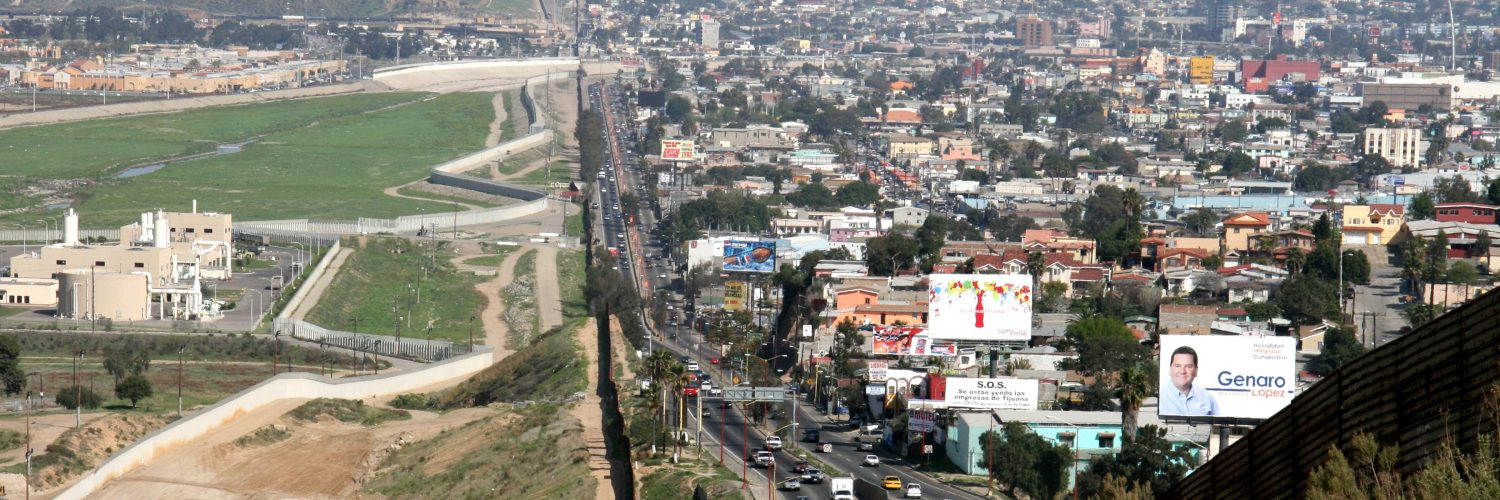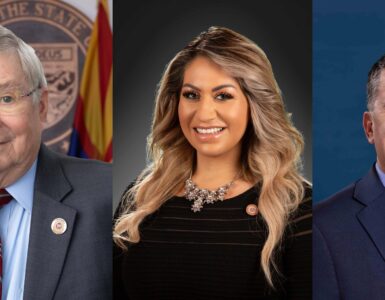Arizona border communities that were overwhelmed with the migrant crisis last year are rebounding as asylum seekers are being routed back into Mexico, commerce is flowing more smoothly at crossing ports, and a new free trade agreement is in place, local mayors said Tuesday.
Nonprofit, faith-based and government agencies that provided food, shelter and other services to migrants last year also are seeing some relief with the announcement of a second round of emergency funding from the National Board for Emergency Food and Shelter Program.
And as the migrant humanitarian crisis has shifted south of the border, a new $2.5 million shelter opened this month in Nogales, Sonora, Mexico, to take in families that continue arriving in search of a legal path to America.
“Everything has calmed down completely,” said Nogales, Arizona Mayor Arturo Garino. “Almost everybody is being processed in Mexico. We don’t have people waiting to come across. I was in Nogales, Sonora, yesterday and it took me 15 minutes to get across when it would have taken two hours last year.”
Almost one million migrants arrived at U.S. borders
Last year, record breaking numbers of Central American families trekked north to the border seeking asylum, resulting in hours-long delays at many ports of entry.
Close to a million — 977,509 — migrants were apprehended last year, almost double the amount from five years prior, according to the U.S. Customs and Border Protection (CPB).
Under threat from the Trump administration, Mexico agreed to stem the flow of migrants. Monthly apprehensions dropped from around 100,000 each month to tens of thousands.
Commerce buzzing again
Now, at the height of produce season, 1,300 to 1,500 trucks transporting goods are flowing smoothly across the border daily, Mayor Garino said.
Businesses that were hurt by the border chaos are seeing profits returning, he said. Sixty-five to 70 percent of the city’s sales tax comes from outsiders who come to shop in Nogales or stop on their way to Tucson. Last year, border issues caused the city’s revenues to decrease by about $140,000.
When the mayor gives his state of the city speech next month, he expects to announce that revenues are well into the black.
Yuma state of emergency lifted
In Yuma last year, Mayor Doug Nicholls, was faced with a city crushing under the weight of thousands of migrants needing assistance.
In one four-month period, Yuma dealt with 5,700 desperate migrants, mostly Central American families released from custody by the Border Patrol, he said. He called upon the city’s non-profit partners to help prevent widespread homelessness and starvation among migrant families.
In April, he called a state of emergency when city services, shelters and food lines could no longer handle the influx.
The dollar impact for illegal immigration activity during the first half of 2019 is estimated at about $1.2 million, which includes the sheltering process and health care costs that were not reimbursed, said Nicholls, who withdrew the emergency proclamation in December.
New policies and stronger border security in place
As the crisis reached a tipping point, new U.S. Migrant Protection Protocols were put in place to return migrants to Mexico to await processing or return them to their home countries. The White House also entered into agreements with Mexico and Central American countries to increase border security.
Now, the border region is stabilized, the two mayors said.
Second round of funding to reimburse agencies that aided migrants
To reimburse agencies that shouldered much of the burden of the humanitarian crisis, an act called the Emergency Supplemental Appropriations for Humanitarian Assistance and Security at the Southern Border Act was signed into law on July 1, 2019.
It provides $30 million for the Federal Emergency Management Agency’s Emergency Food and Shelter Program (EFSP) to reimburse local communities. During round one, $8 million was reimbursed to over 80 entities for expenses incurred the first six months of 2019. Round two covers the second half.
State and local social service organizations in Arizona are eligible to apply for this supplemental funding on the EFSP website.
New shelter opens on Mexican side of the border
To continue to assist migrants, the nonprofit Kino Border Initiative unveiled its new shelter this month near the Nogales-Mariposa Port of Entry.
Called the Migrant Outreach Center, the 19,000 square-foot facility has dining space, classrooms, offices and separate sleeping areas for men and women and children.
United States Mexico Canada Agreement to help border economies
After a rough year, both mayors said last month’s passage of the new free trade agreement, the USMCA, offered a ray of hope.
“It is critical to the continued and increasing growth of the Yuma area,” Nicholls said. “We are already seeing interest in companies looking to have a United States presence and keeping close proximity to both Mexico and California. Job creation and opportunity benefits the Yuma region that has a unique positioning to engage on the global stage.”
Moving forward
Both mayors said they hope that the region can now focus on strengthening economies and communities.
There are still challenges ahead. Immigration reform is one, said Nicholls, adding that Yuma’s thriving agricultural and other industries rely upon labor from neighboring countries to supplement the lack of domestic workers.
Global competitiveness will rely on updated, concise immigration laws, he said.
“We have come a long way past the humanitarian border crisis of 2019, but are not done yet,” Nicholls said. “Our nation is founded upon legal migration. The need for a more modern immigration reform is long overdue. It is a federal level issue that has a huge impact locally.”
















Add comment